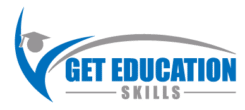
Education is a fundamental element in shaping our personal and professional lives. It encompasses a wide range of areas, from developing essential skills and preparing for exams to planning careers and exploring college options. This guide provides an in-depth look at various facets of education to help students, educators, and career seekers navigate their journeys effectively.
1. The Role of Education
Education is the systematic process of acquiring knowledge, skills, values, and attitudes. It serves as the foundation for personal growth and societal advancement. From early childhood education to higher education and lifelong learning, education equips individuals with the tools needed to thrive in a complex and evolving world.
2. Essential Education Skills
To succeed in any educational or professional setting, certain skills are crucial:
Critical Thinking: The ability to analyze and evaluate information objectively.
Effective Communication: Conveying ideas clearly and persuasively in both written and verbal forms.
Problem-Solving: Identifying issues and finding innovative solutions.
Time Management: Organizing and prioritizing tasks to achieve goals efficiently.
Digital Literacy: Proficiency in using technology to support learning and productivity.
Developing these skills can enhance academic performance and prepare individuals for various professional challenges.
3. Mastering Examinations
Examinations are a key component of the educational process, assessing students' understanding and knowledge. Common types include:
Standardized Tests: Assessments that measure performance against set benchmarks.
Quizzes and Midterms: Frequent evaluations to monitor ongoing learning progress.
Final Exams: Comprehensive assessments at the end of a course or academic term.
Effective exam preparation involves creating a study plan, practicing with past papers, and mastering test-taking techniques. Regular study habits and stress management are essential for optimal performance.
4. Career Planning
Career planning is crucial for achieving long-term professional goals. Key steps include:
Self-Assessment: Identifying personal interests, strengths, and career aspirations.
Research: Exploring various career options and understanding job requirements and market trends.
Skill Development: Acquiring relevant qualifications and experience for your chosen field.
Networking: Building professional connections and seeking mentorship.
Career planning is a dynamic process that involves continuous learning and adaptation to changing interests and market conditions.
5. Exploring Careers Online
The digital age has revolutionized career exploration and development. Useful online resources include:
Job Portals: Websites where job openings are listed and applications can be submitted.
Professional Networking Sites: Platforms like LinkedIn for career networking and job opportunities.
Online Courses: Platforms offering courses and certifications to enhance skills and knowledge.
Utilizing these online tools can greatly enhance job search efforts and career advancement.
6. College Preparation
College is a significant step in higher education, providing specialized knowledge and opportunities for personal development. Key considerations include:
Researching Colleges: Evaluating institutions based on academic programs, campus life, and location.
Application Process: Preparing and submitting applications, including essays and recommendation letters.
Financial Planning: Understanding tuition costs and exploring financial aid options.
A well-thought-out approach to college preparation can significantly impact future academic and career success.
7. Supporting Educators
Teachers play a vital role in shaping students' educational experiences. Effective teaching involves:
Lesson Planning: Designing engaging and informative lesson plans.
Classroom Management: Creating a positive and productive learning environment.
Student Assessment: Evaluating student performance and providing constructive feedback.
Supporting educators with resources and professional development is essential for fostering an effective learning environment.
8. The Importance of General Education
General education geteducationskills provides a broad knowledge base and essential skills. It includes:
Literacy and Numeracy: Fundamental skills in reading, writing, and mathematics.
Social Studies: Knowledge of history, geography, and civic responsibilities.
Science and Technology: Understanding scientific principles and technological advancements.
A strong foundation in general education prepares individuals for a wide range of life and career opportunities.
Conclusion
Education is a multifaceted journey that extends beyond traditional learning. By focusing on essential skills, effective exam strategies, career planning, and leveraging digital resources, individuals can enhance their educational experiences and future success. For further information and resources on these topics, visit Get Education Skills.
Comments on “Unlocking Educational Success: A Comprehensive Guide to Essential Aspects of Education”